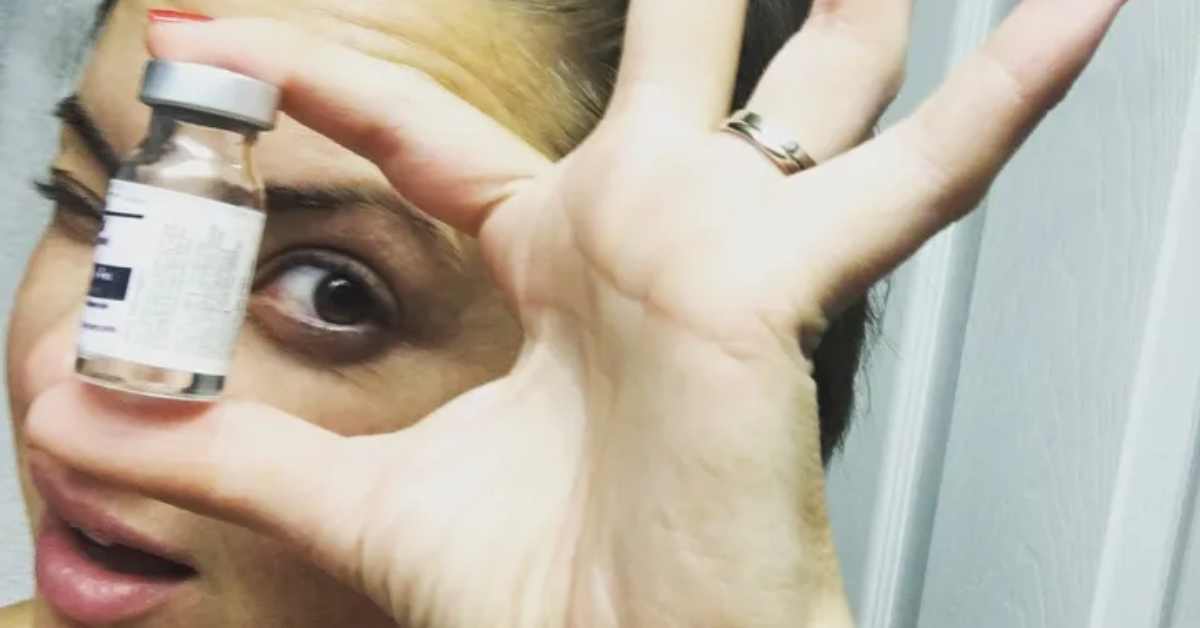Amanda Christine Riley is a Christian blogger and mother of two from California. In 2012, she started “Lymphoma Can Suck It,” an archived blog that chronicled her story after being diagnosed with Hodgkin’s lymphoma in her late 20s. People with an aggressive form of cancer read about her story on her blog and social media. Friends, strangers, and even famous people felt sorry for her and gave her money for medical treatments.
What’s the matter? Riley wasn’t sick with cancer.
Riley, who is 38 years old now, has never had cancer, so she has never had any treatments for it. An IRS special agent named Arlette Lee made a criminal complaint against her in July 2020, saying that she had used the illness as an excuse to scam people out of tens of thousands of dollars.
“Scamanda,” Charlie Webster‘s new hit podcast, is about Riley. With the help of Riley’s victims, reporters, and police who worked the case, the podcast shows Riley’s web of lies.
The complaint says that the former principal and teacher got a megachurch, friends, coworkers, and even strangers, like singer LeAnn Rimes, to give her and her family more than $100,000 to help pay for her fake cancer treatments and travel for things she said she wanted to do before she died.
Riley wrote on her blog more than once that she was very close to dying. Then, she would have a “terminal miracle” that would put her cancer into remission for no apparent reason. This would take her fans on an emotional roller coaster. Riley even said at one point that being pregnant had “reversed the cancer.” (It would always come back in the end.)
The Department of Justice says Riley got at least 349 gifts worth more than $105,000 for the seven years she committed fraud.
In that case, where is Riley now? Her story doesn’t have a happy ending, but the problems she had are now part of the past of the law.
Amanda C. Riley faced strict repercussions for her fraud — and made legal history
The case wouldn’t have happened without the work of investigative producer Nancy Moscatiello. She started looking into Riley after getting a tip from a stranger in 2019 that she should look into the writer. She went on the attack right away and tried to sue her for civil harassment, but the judge threw out the case.

Moscatiello’s sister had died of cancer, so he dug deeper. He called the hospitals and clinics Riley said she had been to and looked very closely at the pictures she shared on her blog. She told Jose Martinez, a former financial crimes detective in San Jose, what she had found. After Martinez, the case was finally given to the IRS, who took it to the next level.
The DOJ said the charges against her, which were brought in July 2020, were related to financial crimes related to “a scheme to solicit donations from individuals to help her pay for cancer treatments she neither needed nor received.”
Title 18, United States Code, Section 1343 says that Riley broke the law when he “obtained money or property employing false or fraudulent pretenses, representations, or promises; transmits or causes to be transmitted employing wire, radio, or television communication in interstate or foreign commerce, any writings, signs, signals, pictures, or sounds to execute such scheme or artifice.” Lee from the IRS filed a criminal complaint.
During the trial, it was shown how far Riley went to commit fraud. For example, she shaved her head to look like she was getting chemotherapy, lied in her medical records, faked doctors’ notes, and made a library of pictures showing her fake journey with cancer.
She was given a prison term of 60 months and told to pay back $105,513 in damages.
The show says that this was the first time that the IRS successfully prosecuted someone for lying about having cancer to raise money.
Riley is being held at FMC Carswell, a federal jail in Ft. Worth, Texas, which has cells for all levels of security and focuses on housing prisoners with mental and physical health needs.
The judge who sentenced Riley said she “preyed on the kindness and goodwill of innocent, loving people” and “invaded the sanctity of communities and grieving members of support groups” to steal their money and spend it on her lifestyle, as reported by the Huffington Post.
In their sentencing report, prosecutors Stephanie M. Hinds and Michael G. Pitman wrote about “the awful irony” that Riley’s friends “would have supported her if she had simply asked them honestly for help.”
Riley instead “deliberately chose to lie to people who trusted her and to use that lie to make money for several years.” This behavior was a cunning betrayal of the victims’ kindness, and it has completely changed how the victims see the world.




